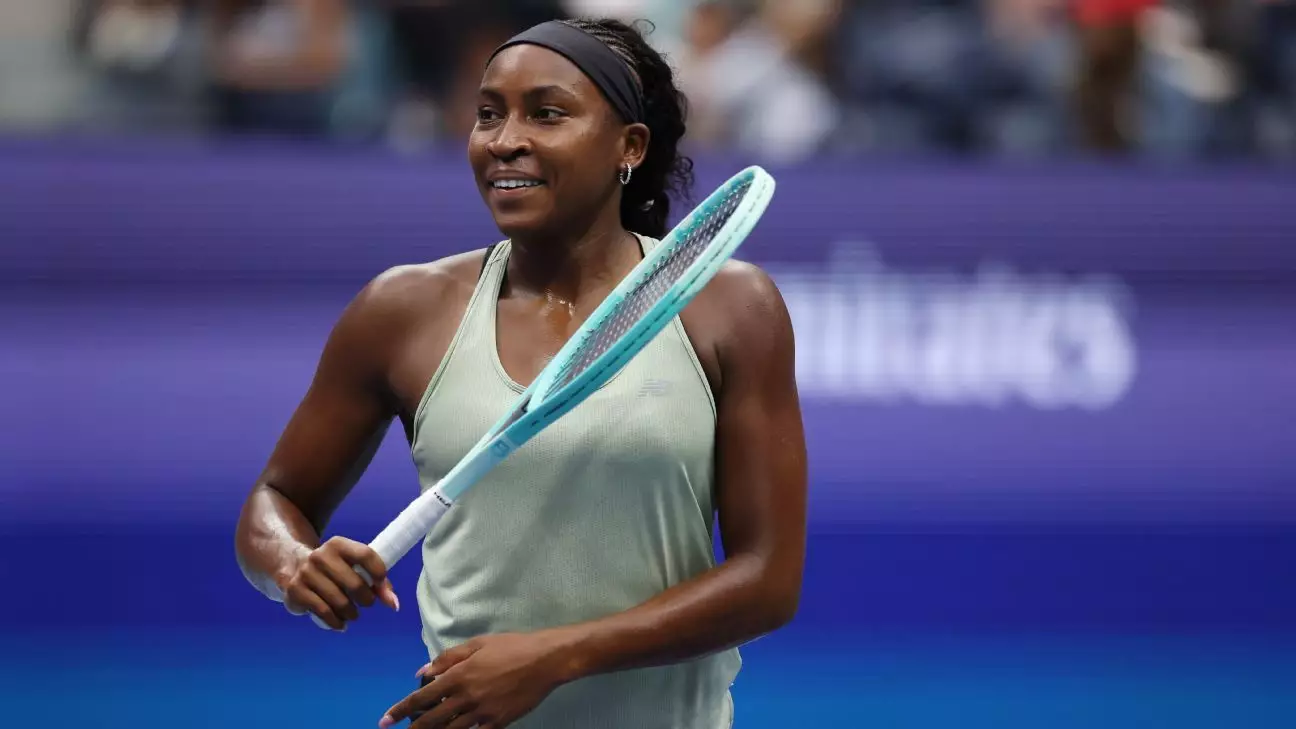Coco Gauff’s decision to part ways with her longtime coach Matthew Daly just days before the 2025 US Open underscores a broader theme: the relentless pursuit of excellence often demands disruptive change. While some may view this move as impulsive or risky, it reveals Gauff’s acute awareness of her vulnerabilities and her willingness to confront them head-on. Her collaboration with Jean-Christophe “J.C.” Faurel continues, but the addition of biomechanics expert Gavin MacMillan hints at a strategic shift toward a more technical, data-driven approach. This could be the catalyst Gauff needs to elevate her game beyond previous peaks.
Much of Gauff’s recent struggles, especially her serve issues manifesting as 42 double faults at the Canadian Open, have seemingly pushed her to reconsider her coaching setup. Her past triumphs—winning the French Open and reaching multiple finals—demonstrate her potential, but the inconsistencies threaten her sustainability at the top. By seeking assistance from MacMillan, renowned for refining serve mechanics and physical technique, she signals an intent to address foundational flaws that have hampered her performances recently.
The High Stakes of Coaching Instability
Changing coaches midway through a pivotal season is rarely without controversy or risk. Daly’s exit raises questions about the internal dynamics of Gauff’s team, especially since he was instrumental in her victory at the China Open. His background as a grip specialist suggests his expertise was targeted at technical nuances, notably serving—a glaring weak point at times. Yet, his departure before the Grand Slam could be interpreted as a strategic reset, emphasizing that Gauff is prioritizing immediate results over established chemistry.
It’s worth noting that Daly’s high praise for Gauff hints at mutual respect, which makes the sudden split notable. When a coach publicly states good fortune working with an athlete but then departs abruptly, it hints at underlying tensions or differing visions. As Gauff remains tight-lipped about her team changes, it raises questions about her clarity of purpose. Is she experimenting with new techniques, or is she searching for an emotional and mental boost to complement her physical improvements?
Embracing a New Vision for Performance
Gauff’s decision to bring in a biomechanics specialist illustrates her understanding that tennis success isn’t solely reliant on talent and strategy but also on precise physical execution and technical mastery. Her past issues with her serve, which have visibly affected her confidence on key points, may finally be addressed through MacMillan’s tailored approach. The importance of this cannot be overstated, especially with a tournament as prestigious as the US Open looming.
Her recent results, including a first-round exit at Wimbledon and struggles in other tournaments, serve as a wake-up call. Gauff’s resilience will be tested in New York, but if her coaching adjustments translate into more consistent serves and aggressive play, she could redefine her trajectory. Her broad experience—winning majors and reaching finals—coupled with this renewed focus on fundamentals, suggests she’s not just aiming to defend her 2023 US Open title but to reaffirm her status as a formidable force in women’s tennis.
In the end, Gauff’s willingness to shake up her team reflects an insightful understanding: true growth often involves discomfort and change. For her, the 2025 US Open may well be the platform where this bold gamble pays off, setting a new standard for resilience and adaptation in competitive sports.

